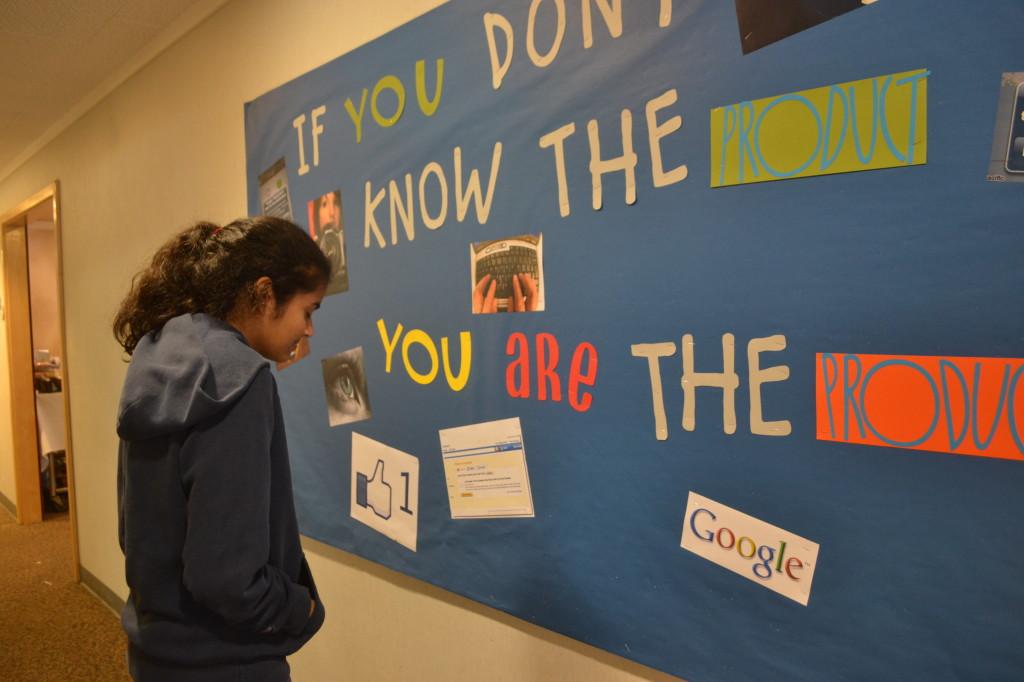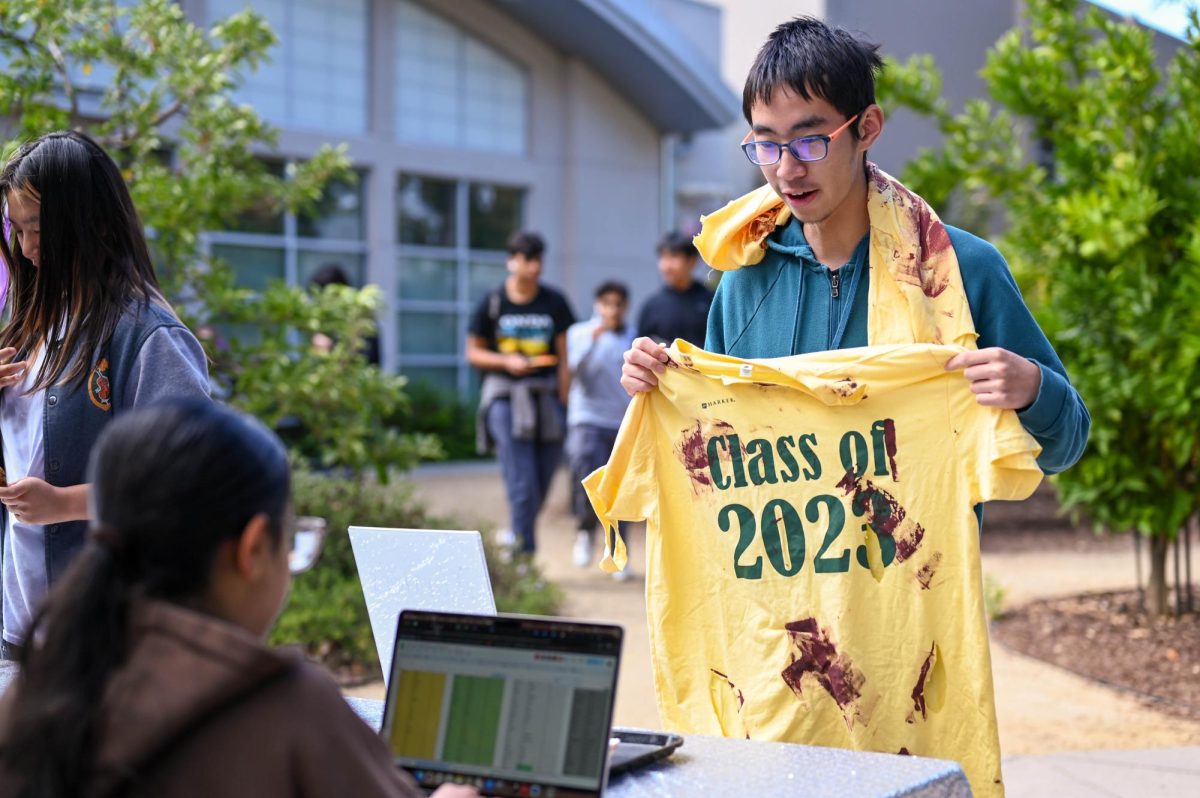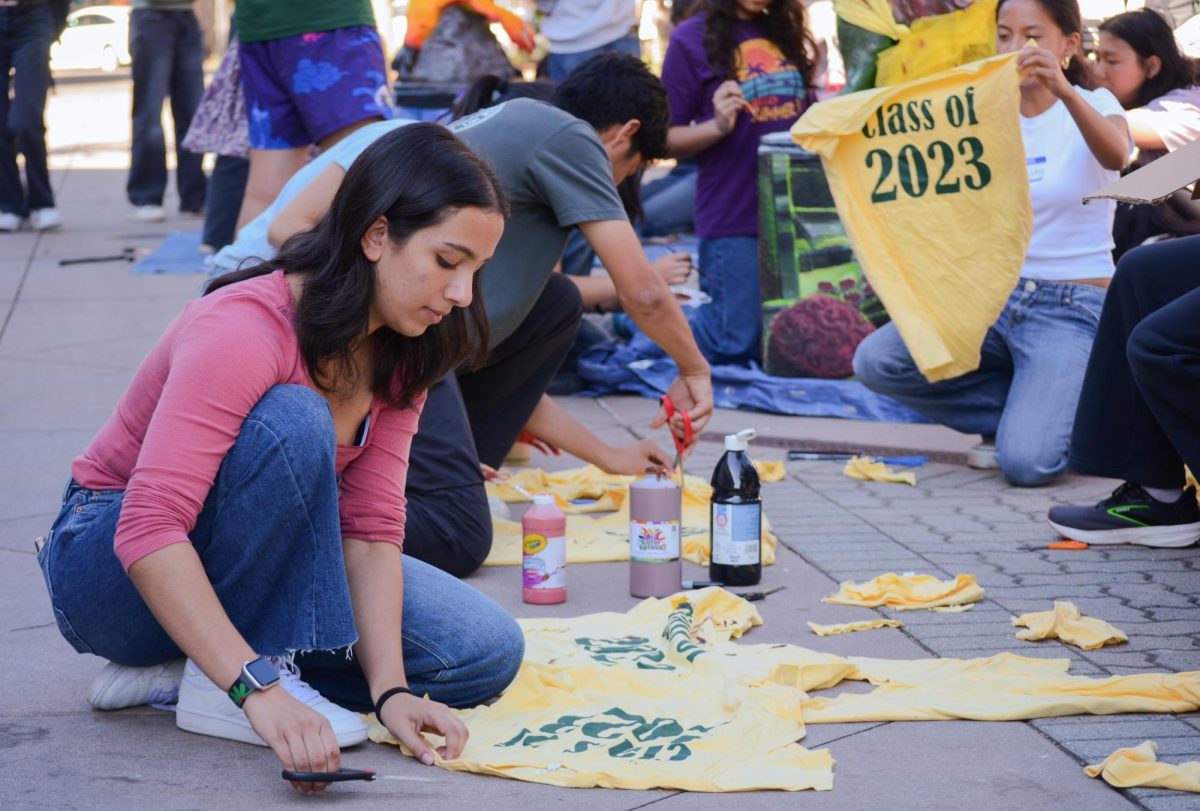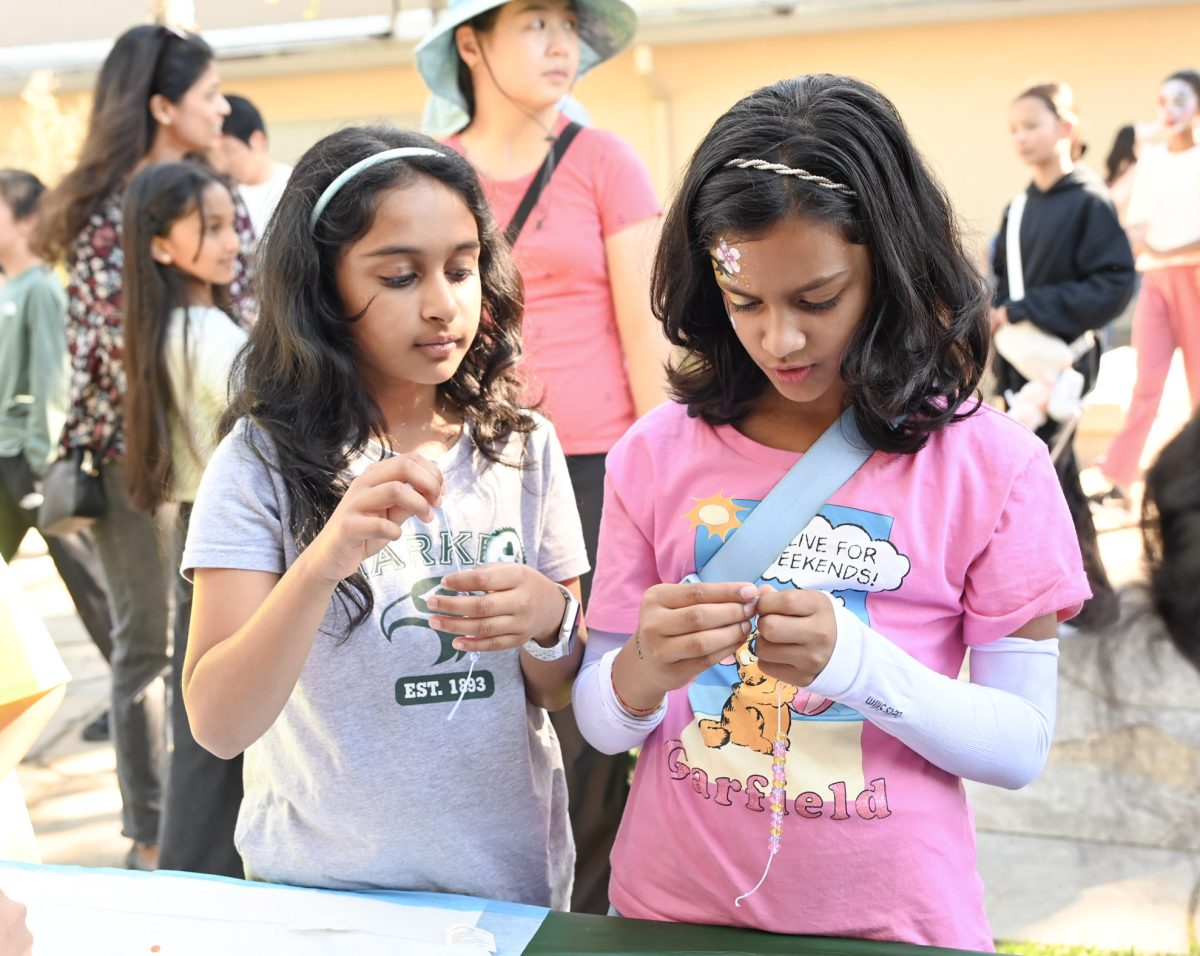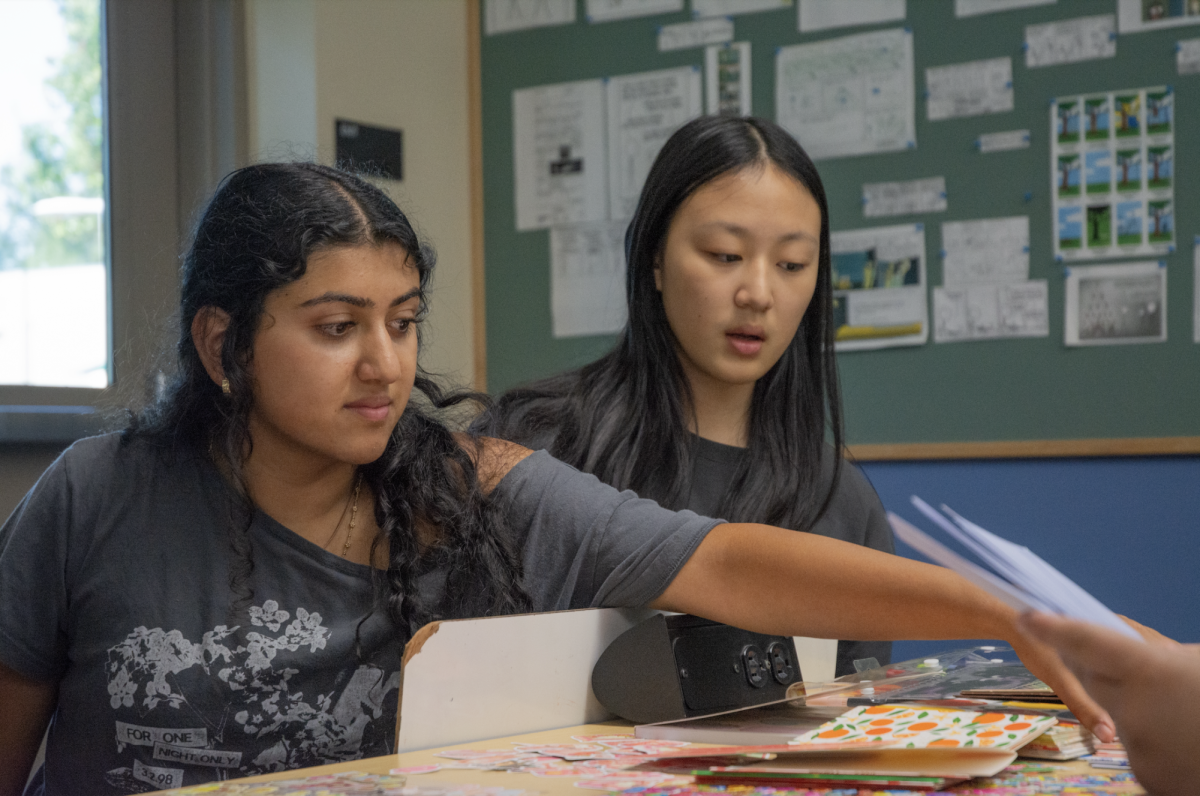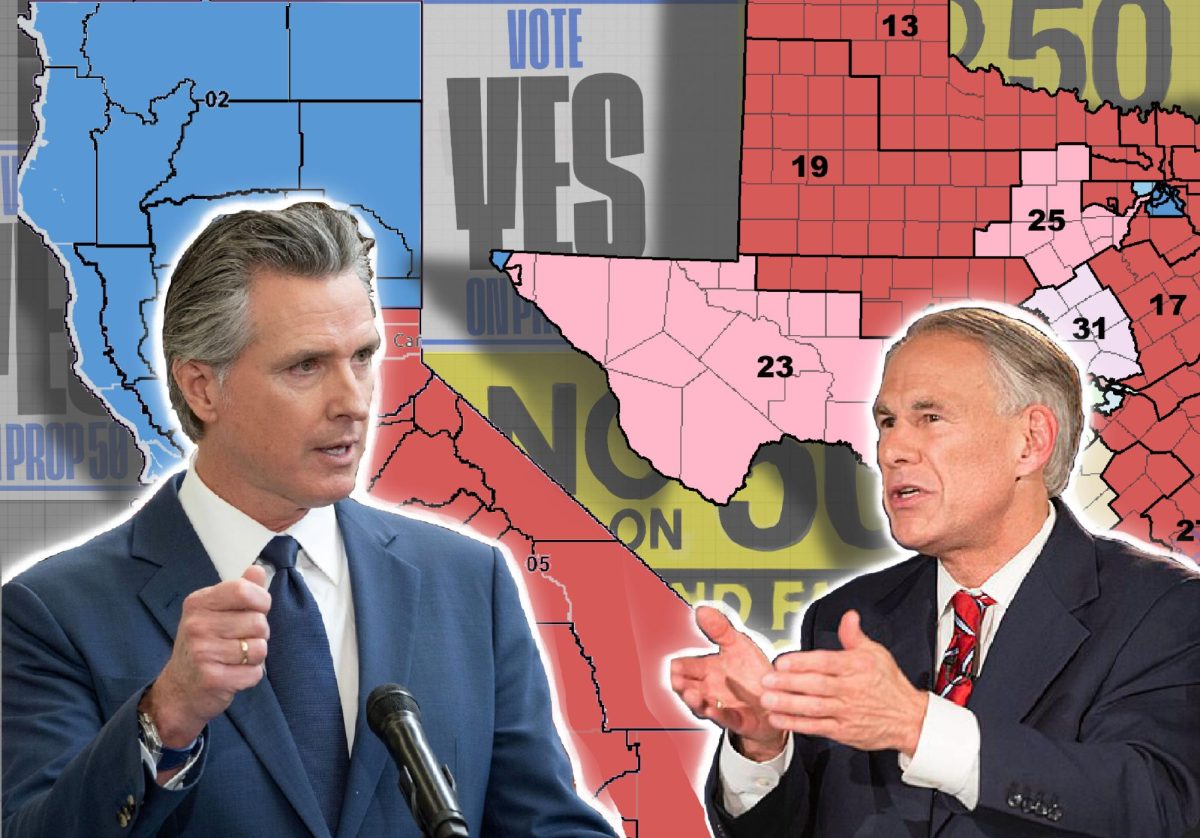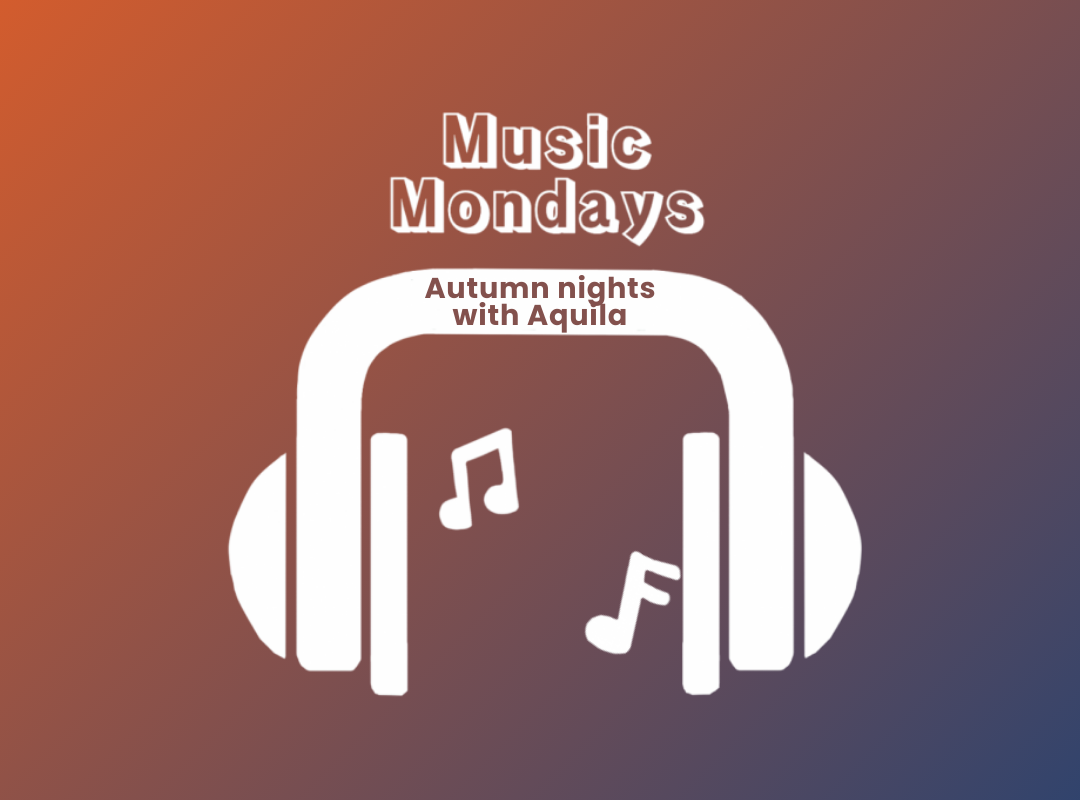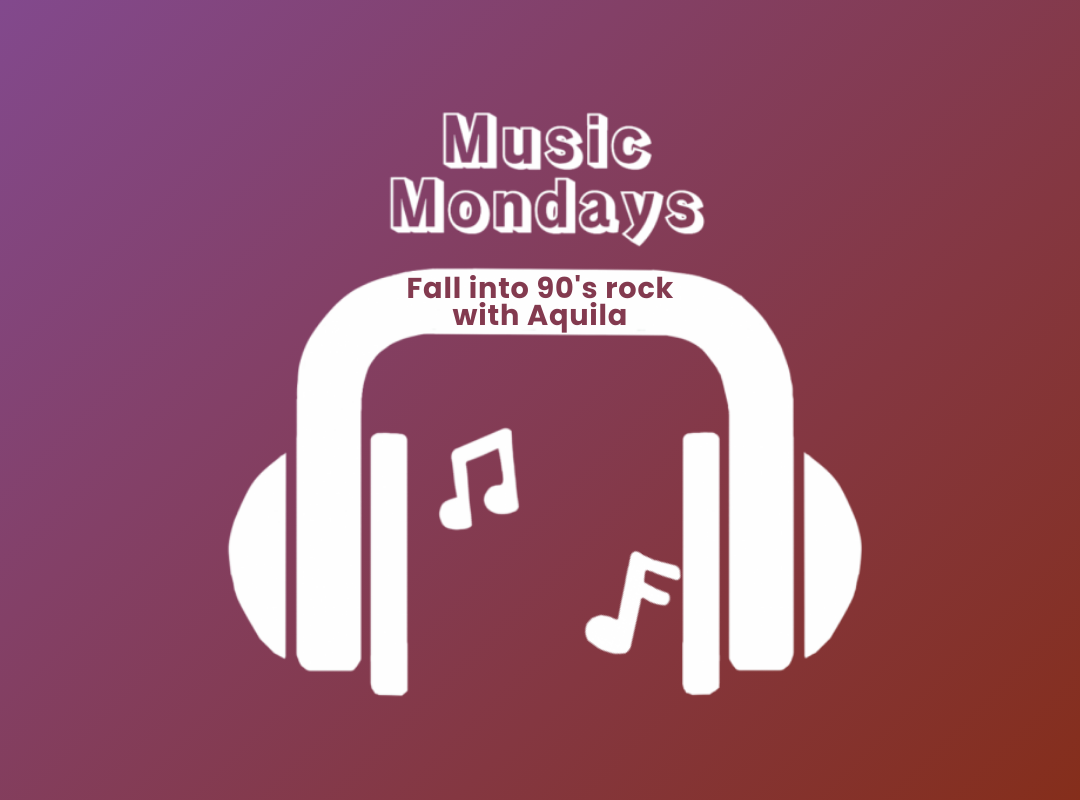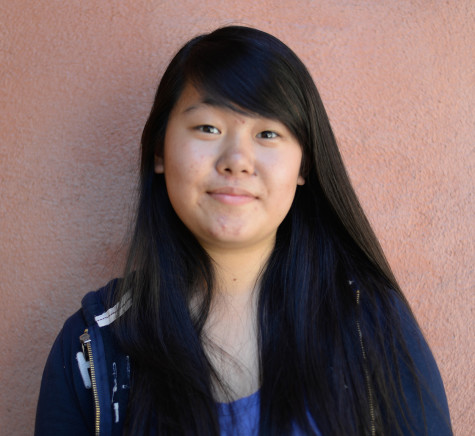The Upper School library hosted Choose Privacy Week this week in order to raise awareness about privacy settings and security on the Internet.
At the school meeting on Tuesday, librarians Lauri Vaughan and Meredith Cranston introduced the week and explained some of the details. Using a humorous skit parodying Facebook users discussing photo and post visibility, they showed the effects of not knowing who can access your information on the Internet. They also encouraged students to be more aware of their privacy settings on sites such as Facebook.
In addition, a bulletin board was set up in the Edge featuring the message “If you don’t know the product, you are the product.” The bulletin acted as a reminder for students that many sites, such as search engines and social networking, had access to personal information and search history, often for revenue.
Choose Privacy Week was organized by the American Library Association. It was recognized nationally during the first week of May, but as that conflicted with AP testing schedules, the library decided to hold it this week instead.
With the rising popularity of social media websites and search engines, privacy was becoming a greater issue that affected the majority of students, many of whom were not fully aware of the information that they were giving out every day on the Internet.
“As the world became digital, there’s much more transparency in our lives, and there’s much more information that we automatically share with strangers, people for commercial reasons, without even really knowing it. And we’re doing it all the time,” Vaughan said.
In addition, the librarians explained that privacy settings were constantly being changed to access more information without many individuals realizing it.
“It’s so faceted now, that there’s ever more control you can have over your privacy, but with that there’s ever more ways people can access you,” Cranston said.
Privacy had also had an impact in not only the lives of individuals, but also in organizations such as public libraries and in the media, with governments instead of commercial companies wanting private records.
Since 9/11, homeland security has been trying to access information from libraries through the checkout history of readers, which is protected through the library Bill of Rights. In addition, the Justice Department recently seized phone records from the Associated Press without permission, damaging many relations between journalists and key anonymous sources.
The library’s advice on the topic of privacy had an impact on many students, who thought about what was said and had a new perspective on the issue.
“I think the librarians’ suggestion of constantly checking your privacy settings is a very good idea, so I intend to do that more often in the future,” Patrick Lin (10) said.
However, some students had already heard similar messages many times, “so often that it kind of becomes something people ignore,” according to Alice Wu (9).
Although the information was not necessarily new to students, it acted as a reminder to think at least think about privacy.
“It wasn’t as surprising to me, though I know that awareness is one of the issues, so that’s a good thing to talk about,” junior Leslie Tzeng said.
Overall, the library felt their goal to spread awareness was reached through the responses they have gotten from students.
Students who want more information about the week can visit http://chooseprivacyweek.org/ or https://www.facebook.com/chooseprivacyweek, as well as http://privacy.org/ for general details on Internet privacy.
Choose Privacy Week was one of the two awareness weeks hosted by the library this year, with the other being Banned Books Week in the fall.


















![“[Building nerf blasters] became this outlet of creativity for me that hasn't been matched by anything else. The process [of] making a build complete to your desire is such a painstakingly difficult process, but I've had to learn from [the skills needed from] soldering to proper painting. There's so many different options for everything, if you think about it, it exists. The best part is [that] if it doesn't exist, you can build it yourself," Ishaan Parate said.](https://harkeraquila.com/wp-content/uploads/2022/08/DSC_8149-900x604.jpg)




![“When I came into high school, I was ready to be a follower. But DECA was a game changer for me. It helped me overcome my fear of public speaking, and it's played such a major role in who I've become today. To be able to successfully lead a chapter of 150 students, an officer team and be one of the upperclassmen I once really admired is something I'm [really] proud of,” Anvitha Tummala ('21) said.](https://harkeraquila.com/wp-content/uploads/2021/07/Screen-Shot-2021-07-25-at-9.50.05-AM-900x594.png)







![“I think getting up in the morning and having a sense of purpose [is exciting]. I think without a certain amount of drive, life is kind of obsolete and mundane, and I think having that every single day is what makes each day unique and kind of makes life exciting,” Neymika Jain (12) said.](https://harkeraquila.com/wp-content/uploads/2017/06/Screen-Shot-2017-06-03-at-4.54.16-PM.png)








![“My slogan is ‘slow feet, don’t eat, and I’m hungry.’ You need to run fast to get where you are–you aren't going to get those championships if you aren't fast,” Angel Cervantes (12) said. “I want to do well in school on my tests and in track and win championships for my team. I live by that, [and] I can do that anywhere: in the classroom or on the field.”](https://harkeraquila.com/wp-content/uploads/2018/06/DSC5146-900x601.jpg)
![“[Volleyball has] taught me how to fall correctly, and another thing it taught is that you don’t have to be the best at something to be good at it. If you just hit the ball in a smart way, then it still scores points and you’re good at it. You could be a background player and still make a much bigger impact on the team than you would think,” Anya Gert (’20) said.](https://harkeraquila.com/wp-content/uploads/2020/06/AnnaGert_JinTuan_HoHPhotoEdited-600x900.jpeg)

![“I'm not nearly there yet, but [my confidence has] definitely been getting better since I was pretty shy and timid coming into Harker my freshman year. I know that there's a lot of people that are really confident in what they do, and I really admire them. Everyone's so driven and that has really pushed me to kind of try to find my own place in high school and be more confident,” Alyssa Huang (’20) said.](https://harkeraquila.com/wp-content/uploads/2020/06/AlyssaHuang_EmilyChen_HoHPhoto-900x749.jpeg)



